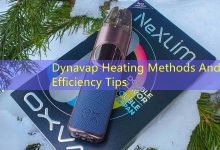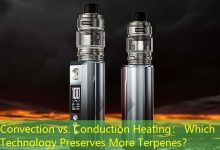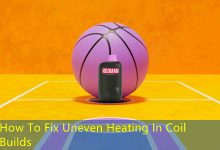# Chanch vs. ʻO ka hoʻomehana Hybrid: ʻO kahiʻenehana Vaporizerʻoi aku ka maikaʻi?
I ka honua o nā Vaporizers, ʻO ka maikaʻi o kaʻenehana i kaʻenehana he paramount i ka laweʻana i kaʻike maikaʻi loa i nā mea hoʻohana. Me kahi plethora o nā koho i loaʻa, ʻElua mau papa hana kaulanaʻelua: ke heleʻana a me ka wela. Hāʻawi kēiaʻatikala e hāʻawi i kahi loiloi kiko'ī o nāʻenehanaʻelua, e nānā ana i kā lākou mau kiko'ī huahana, hoʻolālā Aesthetics, ʻO nā huahanaʻono maikaʻi loa, Ka lōʻihi o ka hoʻohanaʻana, ke ola pākoki, Hana, Mea hoʻohanaʻia, pros a me ka cons, Mau Pūʻulu, a me nā leka uila noi.
## Hōʻike ka huahana a me nā kiko'ī
### Conduction Vaporizers
Conduction vaporizers operate by directly heating the material through a heated surface. ʻO nā hiʻohiʻona kaulana loa e komo i nā papa pax a me ka da Vinci IQ2. These devices are generally compact and feature advanced heating elements, which provide a consistent and efficient vaporization experience.
**Nā kiko'ī:**
– **Lumi mahalaha:** 360°F to 420°F (182°C to 216°C)
– **Ka wā i hala:** Aneane 15-30 kekona
– **ʻO nā kūpono kūpono:** Dry herbs and concentrated oils
– **Ke ola pākoki:** 2-3 hours of continuous use
– **ʻO ka wā hōʻike:** 1-2 Nā hola hola
### Hybrid Vaporizers
Hybrid vaporizers combine both conduction and convection heating methods, allowing for a more versatile and efficient vaporizing experience. The Mighty and Crafty+ vaporizers are quintessential examples of this technology. By utilizing both heating methods, hybrid vaporizers provide optimal extraction while minimizing the risk of combustion.
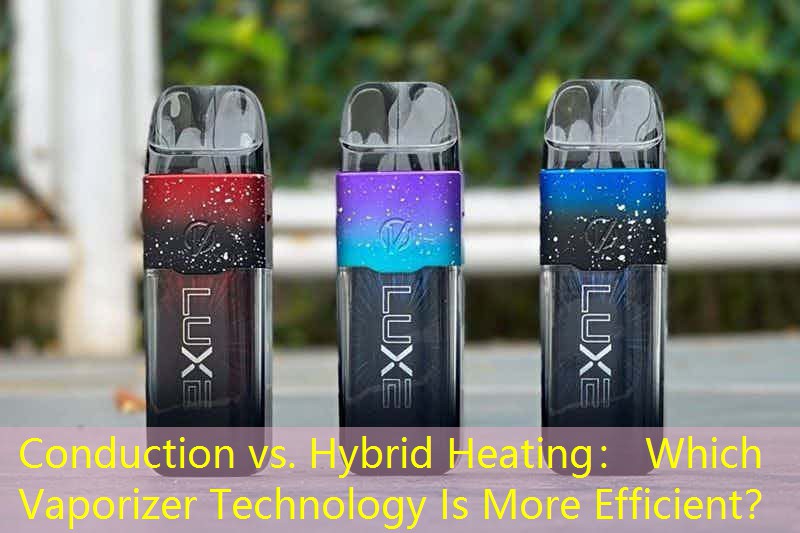
**Nā kiko'ī:**
– **Lumi mahalaha:** 320° F a 400 ° F (160°C to 204°C)
– **Ka wā i hala:** Aneane 30 kekona
– **ʻO nā kūpono kūpono:** Dry herbs and wax
– **Ke ola pākoki:** 1.5-2 hours of continuous use
– **ʻO ka wā hōʻike:** 2-3 Nā hola hola
## Aesthetics and Build Quality
Conduction vaporizers generally feature sleek, portable designs that appeal to users seeking discretion. ʻo kahi laʻana, the PAX 3 boasts an aluminum shell and a minimalist interface that is both stylish and user-friendly. He ʻokoʻa, hybrid vaporizers like the Mighty are bulkier, utilitarian, but designed with high-quality materials that assure durability and longevity.
## Flavor Profile and Duration of Use
### Best Flavor
Conduction vaporizers are often critiqued for producing a slightly inconsistent flavor profile due to their direct method of heating. Akā naʻe,, advancements in technology have improved flavor outcomes considerably. Hybrid vaporizers excel at delivering intense flavor, thanks to their blend of heating methods, which evenly vaporizes the material without any harshness.
### Duration of Use
Both types boast good session durations, but the consistency of a hybrid vaporizer often leads to longer enjoyable sessions. Users typically report around 10-15 draws from conduction vaporizers, while hybrid models can provide up to 20 draws, depending on usage patterns.
## ʻO ke ola pākeke a me ka hoʻopiʻiʻana
Battery performance can heavily influence choice. Conduction vaporizers typically offer slightly better longevity in individual usage sessions, roughly 2-3 Nā hola hola, but they can take up to 2 hours to fully charge. Hybrid vaporizers generally yield around 1.5-2 hours but usually require more extended charging—up to 3 Nā hola hola. Lākahi, it’s essential to consider both battery longevity and charging speed, as they relate directly to mobility and convenience.
## Performance and Usability
Performance ultimately comes down to personal preference and desired results. Conduction vaporizers are ideal for users looking for portable, simplified devices. He ʻokoʻa, hybrid vaporizers cater to those who value robust vapor quality and better extraction.
### Kūlana hana
Conduction devices often require a learning curve regarding pack density and loading, while hybrid vaporizers tend to be more user-friendly, accommodating a variety of user preferences seamlessly.
## Pros a me ka cons
### Conduction Vaporizers
**ʻO ka pōmaikaʻi:**
– Compact a me ke kiʻi
– Faster heat-up time
– Generally less expensive
**Cons:**
– Potential for uneven heating
– Possible risk of combustion if overly packed
### Hybrid Vaporizers
**ʻO ka pōmaikaʻi:**
– Superior flavor and vapor quality
– Even extraction of active compounds
– Versatile, suitable for various materials
**Cons:**
– Bulkier and less portable
– Higher price point
## Rankings and Target User Demographics
### Rankings
– **Conduction Vaporizers:** Generally rank higher for affordability and portability; top contenders include PAX 3 and Da Vinci IQ2.
– **Hybrid Vaporizers:** Score points for flavor and extraction; leading products include Mighty and Crafty+.
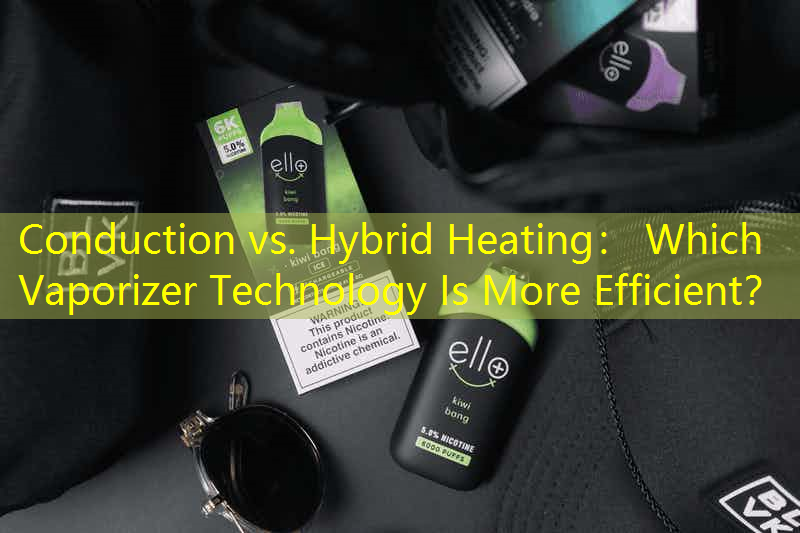
### Nā leka uila hoʻohana noi
Conduction vaporizers tend to appeal to on-the-go users, casual vapers, and those unaccustomed to more complex devices. He ʻokoʻa, hybrid vaporizers attract enthusiasts seeking optimal performance and those who are willing to invest more for a superior experience.
## Hopena
Choosing between conduction and hybrid vaporizers ultimately depends on individual preferences and priorities. For users seeking portability and ease of use, conduction vaporizers are an excellent choice. Akā naʻe,, for those prioritizing flavor, ʻOiaʻiʻo, a me ka versitility, hybrid vaporizers emerge as the clear winners. Understanding these technologies and their respective advantages will empower users in making informed decisions to enhance their vaporizing experience.


